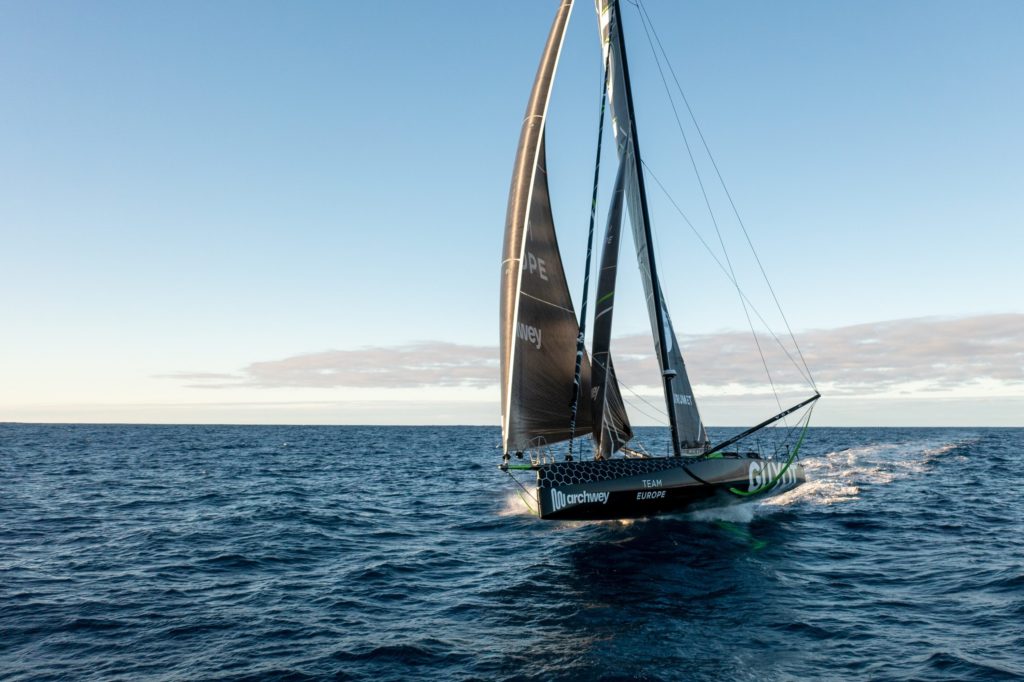The Ocean Race has been underway since 15 January 2023. It is known as the toughest sailing race in the world. But The Ocean Race is more than that. Namely a huge sailing research laboratory...
Text: Gerben Bijpost Photography: Charles Drapeau, Antoine Auriol, Georgia Schofield; The Ocean Race
The Ocean Race is a sailing race around the world held every three years. The race is made up of stages and lasts about six gruelling months. The '22-'23 edition is different from previous years: two classes of ships (IMOCA and VO65) are sailed, with only the former class sailing around the world. The VO65s sail only in-port races and some three offshore stages around Europe.
This set-up was born due to budgetary concerns, but is now seen as adding value, as it allows young, less experienced sailors get a taste of 'the real thing'. Then maybe next year they too can go around the world, is the thought. And not without reason. Because The Ocean Race means sailing across challenging oceans, sometimes in extreme weather conditions and with metres-high waves, going as fast as you can, day and night, at over 40 kilometres per hour past ice floes, whales and stray sea containers, avoiding shallows and cliffs, on constant alert, with minimal privacy, without comfort or luxury, living on astronaut fodder for weeks on end... It is only reserved for the best sailors with the greatest stamina and resilience. In short, absolute top sport.
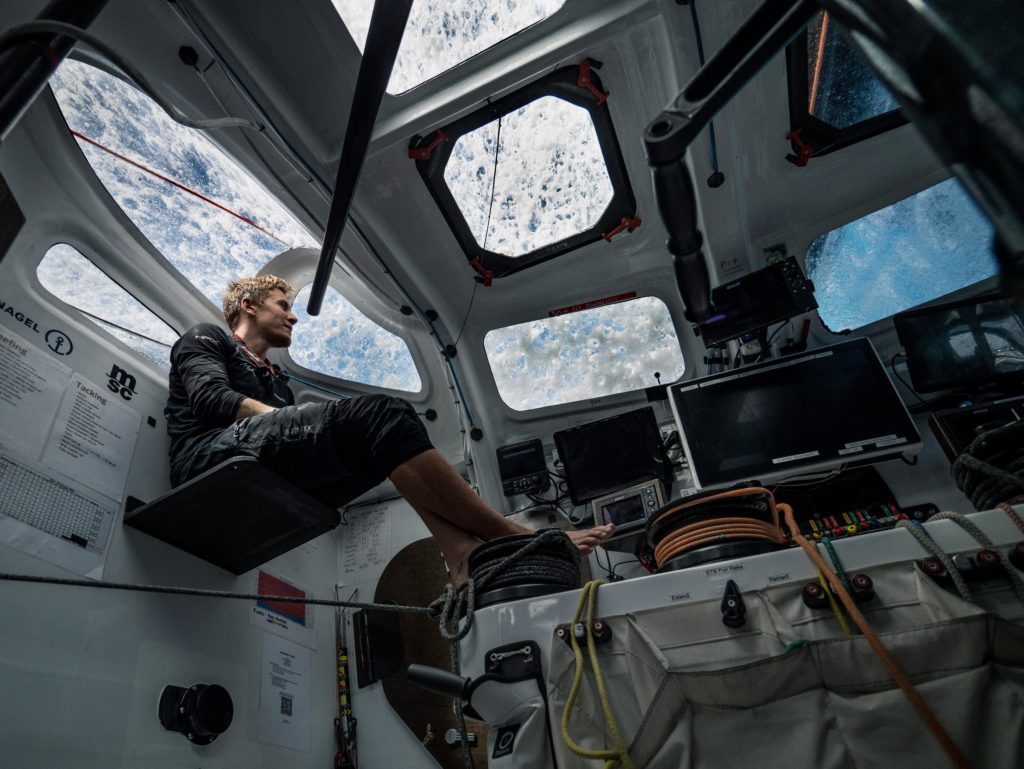
Providing scientific evidence
But as mentioned, The Ocean Race also serves a higher purpose these days. Namely, to chart the state of our oceans. Stefan Raimund, Science Lead at The Ocean Race: "A healthy ocean is not only essential for the sport we love, it also regulates the climate, provides food for billions of people and provides half of all the oxygen on our planet. Its decline affects the whole world. To stop that, we need to provide governments and organisations with scientific evidence and demand that they act accordingly."
Each boat taking part in the round-the-world race therefore has specialised equipment on board, collecting a wealth of information during the 60,000-km attrition race. A unique opportunity, as the IMOCAs sail through some of the most remote parts of the planet, rarely if ever reached by scientific ships.
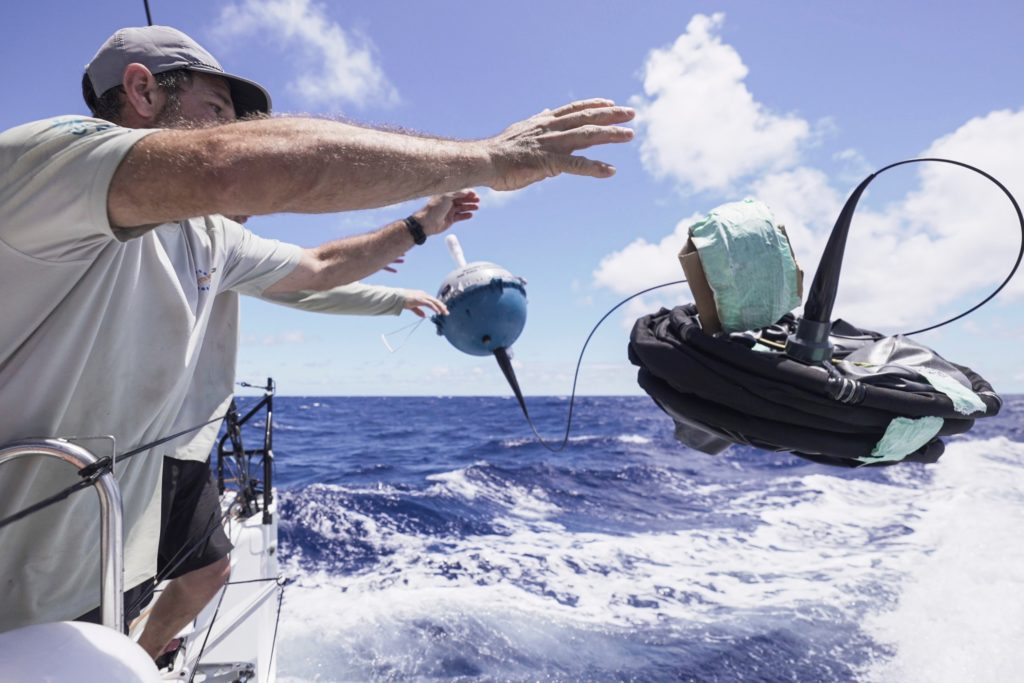
Various measurements
As many as 15 types of environmental data will be collected during this edition of The Ocean Race, including indicators that point to climate change. Two boats carry OceanPacks, which take water samples to measure levels of carbon dioxide, oxygen, salinity and temperature. This provides insight into the impact of climate change on the ocean. Trace elements, including iron, zinc, copper and manganese, will also be recorded for the first time. These are vital for the growth of plankton, an essential organism as it is the first part of the food chain and also the largest producers of oxygen in the ocean.
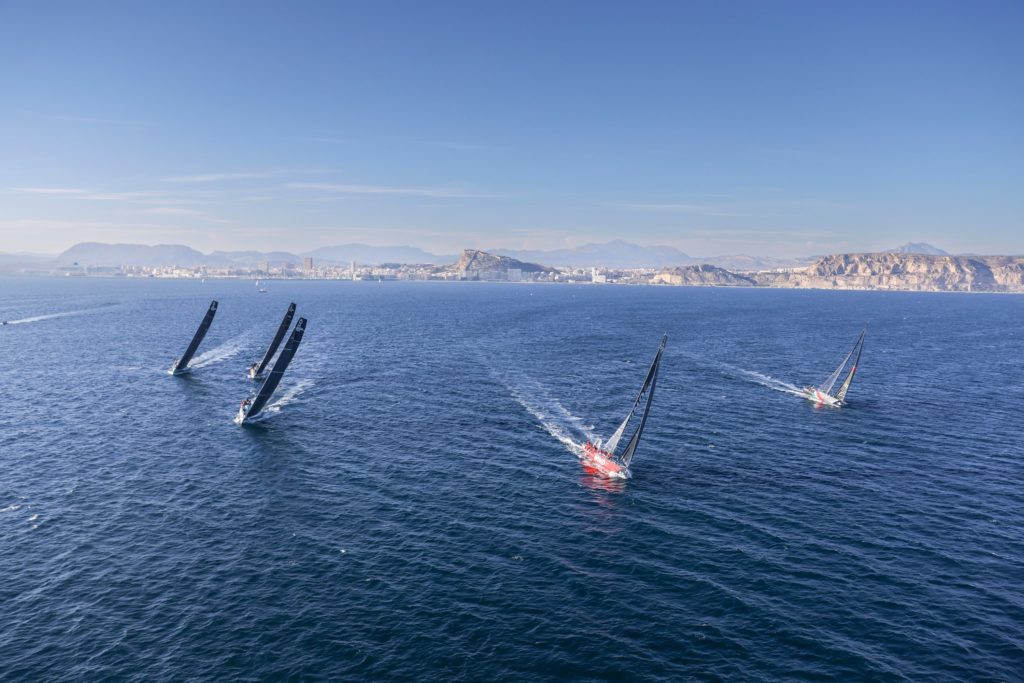
Furthermore, plastic pollution is being monitored. Several ships take regular water samples during the race to test for microplastics. This involves measuring the amount of microplastics, but also, for the first time, analysing samples to determine where the plastic fragments come from (e.g. a bottle or carrier bag).
And meteorological data will be collected: the entire fleet will use built-in weather sensors to measure wind speed, wind direction and air temperature. Some teams will also deploy buoys in the Southern Ocean to take continuous measurements, complete with location data. This helps to better understand how currents and climate change, provides opportunities to improve weather forecasts and gives insight into longer-term climate trends.
Survey results available to all
And finally ocean biodiversity: this is an experimental research project to study ocean biodiversity. A computerised microscope on board takes images of marine phytoplankton on the ocean surface for this purpose. Analysis of these should provide insights into phytoplankton diversity, biodiversity, food webs and the carbon cycle.
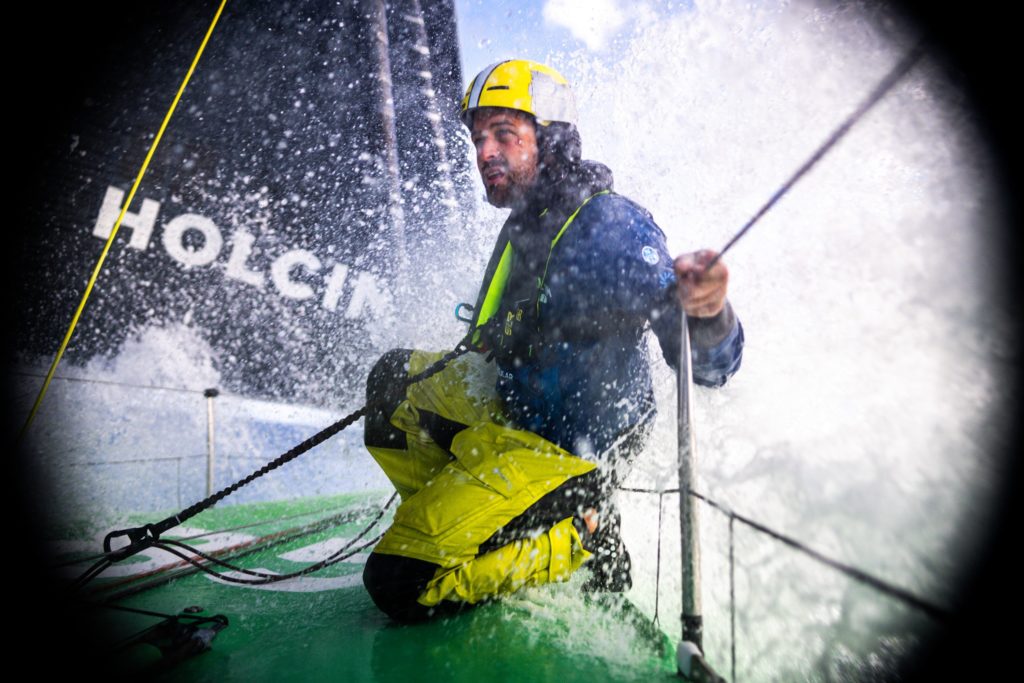
All data collected is open-source and shared with scientific institutions around the world. Stefan Raimund: "Data collected during our previous races have been included in crucial reports on the state of our planet. They have informed governments and influenced their decisions. The realisation that we can make a difference in this way has inspired us to expand our science programme for this edition of The Ocean Race even further and to partner with even more leading scientific organisations to support their vital research."
There is a sports cliché that says: competing is more important than winning. If that applies anywhere, as it now turns out, it is at The Ocean Race.



